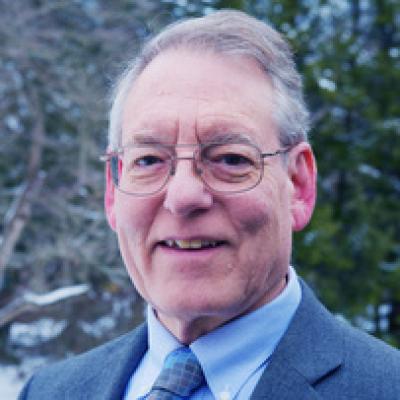Weems Honored with UMass Distinguished Community Engagement Award for Teaching
Content

Charles “Chip” Weems, professor in the Manning College of Information and Computer Sciences at UMass Amherst, has received the 2025 Distinguished Community Engagement Award for Teaching, recognizing his decades-long contributions to computer science education. The award, supported by the UMass Amherst Office of Research and Engagement and the Office of Faculty Development, honors faculty members whose teaching or research has a significant impact on communities beyond campus.
“Chip’s career chronicles over 24 years of community-engaged teaching and demonstrated engagement and impact in both the local and international communities, with clear benefits to learners at UMass Amherst and beyond,” says former Manning CICS Dean Laura Haas.
His curriculum, first developed for Hartsbrook Waldorf High School in Hadley, Massachusetts, emphasizes experiential learning designed to engage all students, including those without prior interest in computing. Through teaching classes and advising students at the Hartsbrook School, Weems identified the shortcomings of traditional Advanced Placement courses that often only served students already interested in computing. His approach at Hartsbrook, therefore, aimed to cultivate technology literacy among all students, enabling many graduates to pursue further studies or careers in computing-related fields. The curriculum has been shared with Waldorf schools worldwide through publications, in-person workshops, direct mentoring of teachers, and online training.
“In my earliest teaching, even before coming to UMass, I saw an ongoing decline in student diversity in computer science. At the same time, my experience was that often my best students were from underrepresented identities whose numbers were in decline. I became committed to understanding the reasons for that decline and doing whatever I could to reverse it,” says Weems.
Weems observed that too many students were discouraged from pursuing computing during high school and early college courses. “That motivated me to broaden the appeal of the discipline,” he explains, noting his co-authorship of 29 introductory texts with longtime collaborator Nell B. Dale, a retired professor at the University of Texas.
“High school students are at a much different place, developmentally, from college students, yet most efforts to create high school curricula were being made by college faculty who lacked experience teaching at that level,” he continues. “When I started helping to found the Hartsbrook High School in 2000, I saw it as an opportunity to gain the necessary training in child development and classroom experience so I could shape a four-year, required, developmentally-based computer science curriculum that meets the needs of all students.”
Weems’s Waldorf-inspired methods have also enriched his teaching at UMass Amherst, notably in his CompSci 335 course, which features hands-on, student-defined projects culminating in public demonstrations that attract broad campus engagement.
“Chip has initiated, developed, and sustained an extensive local community collaboration that has benefitted a local school, its students, and their families, so that a diverse group of students have become better educated about the role that technology plays in their lives and society,” says Haas. “That collaboration has extended into multiple partner organizations at the national and international levels that, in turn, have resulted in benefits for UMass students through innovative, inclusive teaching methods that have been adopted by other faculty as well.”
Beyond local communities, Weems has influenced national and international computer science curricula through his role with the ACM/IEEE Curriculum Task Force and his contributions to the Advanced Placement Computer Science Principles course and ABET accreditation standards. In 2023, he helped shape standards focusing on parallelism and distribution in the ACM/IEEE curriculum.
Weems has been a member of the UMass Amherst faculty since 1984, is one of only five faculty members in the history of the university to receive both the UMass Distinguished Teaching Award and a Distinguished Community Engagement Award, and is one of just four to receive both awards specifically for teaching. He is also the first member of the CICS faculty to earn both honors. He is a Senior Member and Distinguished Contributor of the IEEE, a recipient of the IEEE Computer Society’s Taylor Booth Award for distinguished contributions to computer science education, an ACM Distinguished Educator, and a member of the Computer Science Teachers Association. He has also co-written 29 textbooks, collectively reaching over 1 million students worldwide.
